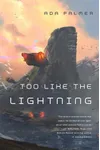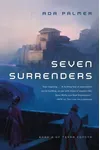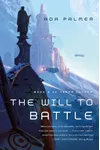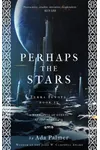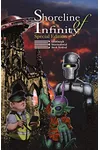Picture a Renaissance scholar spinning tales of a futuristic utopia—meet Ada Palmer! This American historian, science fiction author, and composer weaves her academic expertise into dazzling narratives that challenge how we view society, philosophy, and progress. From her award-winning Terra Ignota series to her folk music rooted in Norse mythology, Palmer’s insatiable curiosity creates worlds that linger in readers’ minds.
Based at the University of Chicago, Palmer’s unique blend of historical insight and speculative fiction has earned her accolades like the 2017 John W. Campbell Award for Best New Writer. Ready to explore a mind that bridges the past and future? Let’s dive into Ada Palmer’s extraordinary story!
The Making of Ada Palmer
Born on June 9, 1981, in Washington, D.C., Ada Palmer grew up in Annapolis, Maryland, surrounded by creativity—her father, a computer engineer, and her mother, an artist. A precocious learner, she started college at 15 at Bard College at Simon’s Rock before earning a history degree from Bryn Mawr College in 2001. Her passion for ideas led to a Master’s and Ph.D. from Harvard University, focusing on Renaissance history and the history of ideas. Palmer’s early love for science fiction, sparked by a mis-shelved copy of The Hobbit in her local library, set the stage for her genre-defying career.
Ada Palmer’s Unforgettable Stories
Palmer’s debut novel, Too Like the Lightning (2016), kicked off her Terra Ignota series, a philosophical sci-fi epic set in 2454. Narrated by the unreliable convict Mycroft Canner, it explores a near-utopian world unraveling through political intrigue and a miraculous child. Its Enlightenment-inspired prose and gender-fluid society earned it a Hugo Award nomination and the 2017 Compton Crook Award.
The sequel, Seven Surrenders (2017), deepens the saga with themes of faith, power, and sexuality, culminating in a shocking twist. The series continues with The Will to Battle (2017) and Perhaps the Stars (2021), blending dense world-building with historical allusions. Palmer’s style—baroque, cerebral, and playful—draws from Voltaire and Diderot, challenging readers to rethink societal norms. Her non-fiction, like Reading Lucretius in the Renaissance (2014), and her upcoming Inventing the Renaissance (2025), showcase her scholarly depth, while her music with Sassafrass adds a lyrical layer to her Viking-inspired tales.
Why Ada Palmer Matters
Ada Palmer’s work redefines science fiction by grounding it in historical and philosophical inquiry. Her Terra Ignota series, a finalist for the 2022 Hugo Award for Best Series, resonates with readers and technologists alike for its nuanced take on societal evolution. As a disability activist living with Crohn’s Disease and polycystic ovary syndrome, Palmer advocates for self-care, adding a personal dimension to her intellectual legacy. Her ability to bridge academia, fiction, and music makes her a singular voice inspiring curiosity and empathy.
- Born: June 9, 1981, in Washington, D.C.
- Key Works: Too Like the Lightning, Seven Surrenders, Reading Lucretius in the Renaissance
- Awards: 2017 John W. Campbell Award, 2017 Compton Crook Award
- Fun Fact: Composes a cappella music inspired by Norse mythology!
About Ada Palmer
Snag Too Like the Lightning and dive into Ada Palmer’s mind-bending sci-fi universe today!
